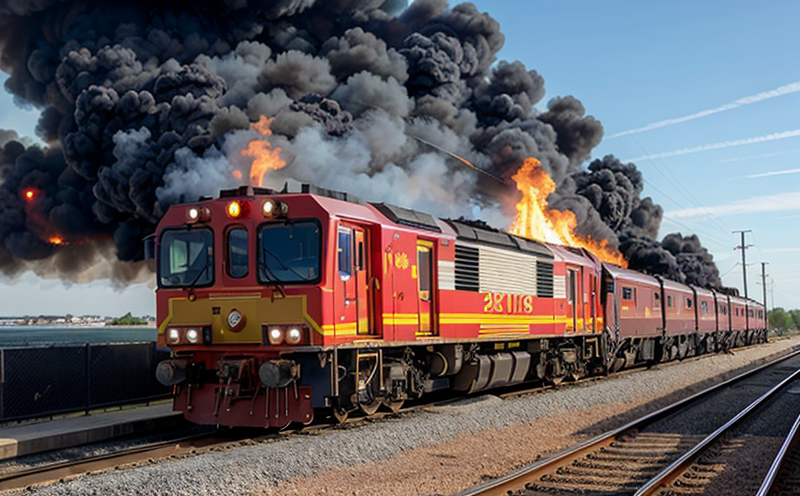Evaluation of Smoke and Flame Propagation in Marine Cabins
Smoke and flame propagation testing is a critical aspect of fire safety assessment in marine environments. In marine cabins, the enclosed spaces and materials used can significantly impact the spread of smoke and flames during an emergency situation. This evaluation ensures that the specified products meet stringent standards for reducing the risk of fire and minimizing its impact on crew and passengers.
The process involves simulating real-world conditions to assess how materials behave when exposed to heat, flame, or other sources of ignition within a confined space. The objective is to determine whether the materials used in construction and furnishing can prevent the rapid spread of fire and smoke, thereby enhancing occupant safety.
The testing typically includes the use of specific apparatus such as a cone calorimeter or a thermogravimetric analyzer (TGA) for measuring heat release rate and char yield. The specimens tested are usually cabin furnishings like fabrics, carpets, curtains, and insulation materials. Compliance with standards such as ISO 16938:2017 and ASTM E648-15 ensures that the results are internationally recognized.
During the test, a controlled flame is applied to the specimen, and various parameters are measured including peak heat release rate (PHRR), smoke production rate (SPR), and time to ignition. These measurements help determine the material's contribution to fire growth and its potential for generating toxic gases and particles.
The results of this evaluation provide critical data that can inform design decisions, material selection, and compliance strategies for manufacturers and shipbuilders. Compliance with regulations such as SOLAS (International Convention for the Safety of Life at Sea) ensures that ships are built to the highest safety standards, protecting lives in case of an emergency.
Understanding the behavior of materials under fire conditions is crucial for improving fire safety measures on board vessels. By identifying weak points early in the design process, stakeholders can implement modifications to enhance overall safety and meet regulatory requirements.
Why Choose This Test
Selecting this test is essential for several reasons:
- Regulatory Compliance: Ensuring that your products comply with international standards such as ISO 16938:2017 and ASTM E648-15.
- Risk Mitigation: Reducing the risk of fire spread in confined spaces, which is critical for marine environments where rapid evacuation can be challenging.
- Safety Enhancement: Improving passenger and crew safety by ensuring that materials used do not contribute significantly to smoke or flame propagation.
- Market Demand: Meeting the increasing demand from clients who prioritize fire safety in their product specifications.
The test offers a comprehensive assessment of material behavior under fire conditions, providing valuable insights that can drive innovation and improvement. It also helps in meeting stringent regulatory requirements and gaining competitive advantage by ensuring superior performance against industry benchmarks.
Quality and Reliability Assurance
- Consistent Results: Our laboratories consistently produce reliable results through rigorous adherence to international standards and protocols.
- Accurate Measurements: Advanced instrumentation ensures precise measurement of key parameters such as PHRR, SPR, and time to ignition.
- Comprehensive Reporting: Detailed reports provide comprehensive analysis of test outcomes, offering actionable insights for continuous improvement.
- Expertise: Our team of experts ensures that the evaluation meets the highest quality standards, providing confidence in the results.
Competitive Advantage and Market Impact
Evaluating smoke and flame propagation is not just about compliance; it offers a competitive edge. By demonstrating superior fire safety performance, manufacturers can differentiate their products in the market. This can lead to increased demand from clients who prioritize safety and regulatory adherence.
Moreover, this service helps businesses comply with international regulations such as SOLAS, which is essential for operating ships globally. Compliance ensures a level of trust among consumers and stakeholders, contributing positively to brand reputation and market standing.
The insights gained from these evaluations can be used to innovate and improve products, leading to safer environments on board vessels. This proactive approach not only enhances safety but also demonstrates a commitment to quality, which is increasingly valued by discerning customers in the maritime industry.





